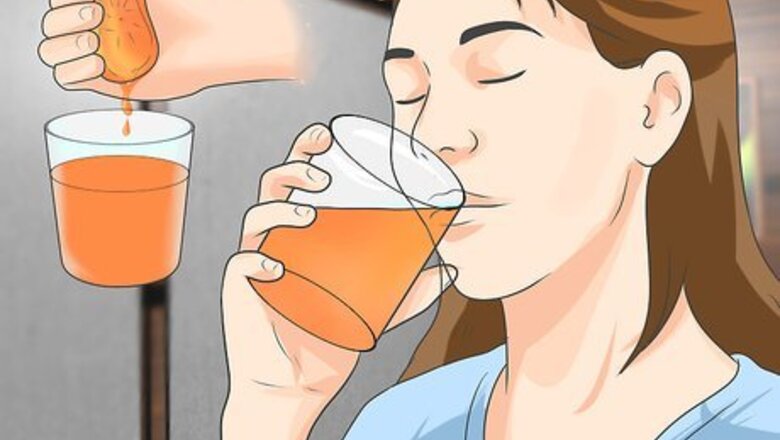
views
Using Fluids
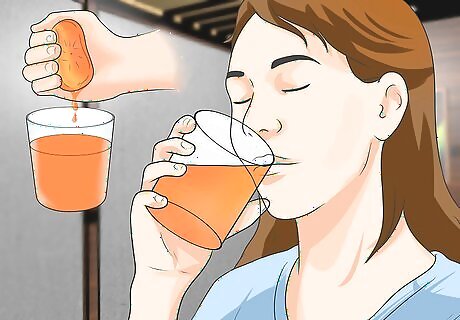
Stay hydrated. Staying hydrated is one of the best ways to thin out mucus and get rid of a mucus cough. You can keep yourself well-hydrated by drinking eight 8-ounce glasses of water (warm or cold) every day and you can drink other fluids as well. You can add a squeeze of lemon juice to your water for flavor if you are not fond of the taste of plain water. Try adding honey to warm water. Honey can help clear up mucus. Do not give honey to toddlers. Drinking tea with a sprig of fresh thyme in it can help clear up mucus. You can also drink fruit juices to meet your daily fluid requirement, but try not to exceed one or two cups of juice per day. If you are vomiting, have diarrhea, or a fever, you will need to increase your water intake, as these can all be very dehydrating.
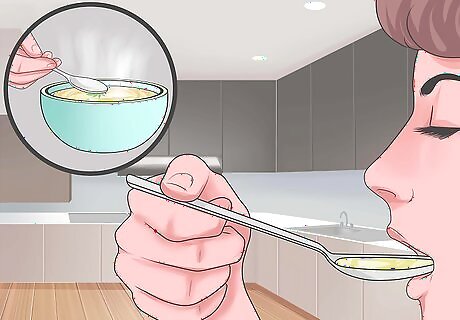
Eat soups and broths. You can also include fluids in the form of broth-based soups and broths. Eating soup or broth as a meal is often recommended when you are sick and it may even help to clear up a mucus cough. The warm of the broth can help to breathe up mucus and the fluid helps to hydrate you as well. Warm broth can be very soothing and will also replenish electrolytes. Try adding a pinch of cayenne pepper to your soup or broth to add some extra expectorant qualities.
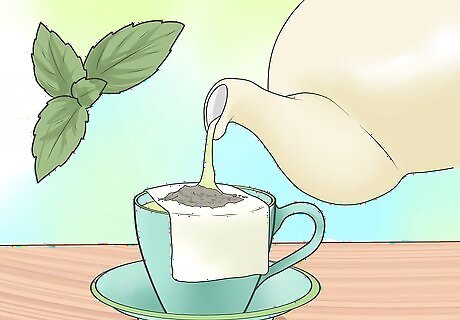
Drink herbal teas. There are several herbs that are known as expectorants, so you may also want to try to include a few cups of herbal tea each day. To make a cup of herbal tea, place one teaspoon of herbs into a mug and pour one cup of boiling water over them. Let the tea steep for about 10 minutes and then strain the tea. Some good expectorant herbs include: Slippery elm Hyssop Mullein Thyme (use only ¼ to ½ teaspoon of dried thyme to make a cup of tea) Peppermint Ginger
Using a Steam Treatment
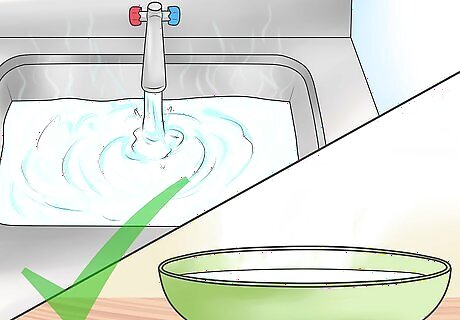
Fill your sink with hot water. You can give yourself a steam treatment using your bathroom sink. Turn the tap on hot and fill the sink with water. If the tap water is not hot enough to create steam, then you can also boil some water and use that to fill the sink. If you prefer not to use your bathroom sink, you can also fill a large metal or glass bowl with boiling water.
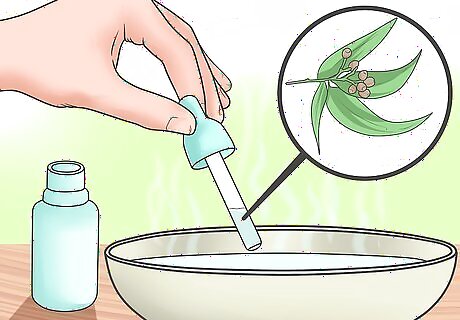
Add a few drops of essential oil. Hot water alone can help to clear up mucus, but you can also add some essential oil to the water to increase the expectorant qualities. Add about three to four drops of the essential oil of your choice. Some good choices include: Eucalyptus Camphor Rosemary Peppermint
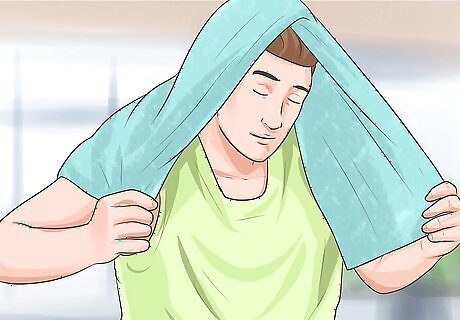
Place a towel over your head. You will need a full-sized towel to cover your head and create a tent for the steam. Place the towel over the back of your head so that it hangs down on both sides of your head, similar to how long hair hangs when you are bending forward. The towel should be long enough to touch the edges of the sink or bowl with your head about 12 to 15 inches away from the water. If it is not, then you will need to find a longer towel or you can use a sheet or blanket.
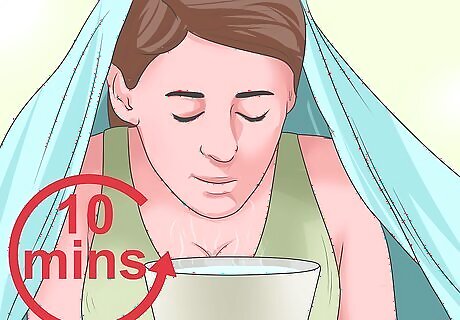
Hold your face over the sink for 10 minutes. After you have the towel over your head, hold your head over the sink and breathe in the steam for about 10 minutes. Make sure that you are about 12 to 15 inches away from the steamy water. If you have trouble breathing or if it feels like the steam is burning you, then remove the towel and step away from the steam. If the water is just too hot, then try adding a bit of cool water to make it more bearable. Never hold your head over water that is boiling on a stovetop! This is extremely dangerous.
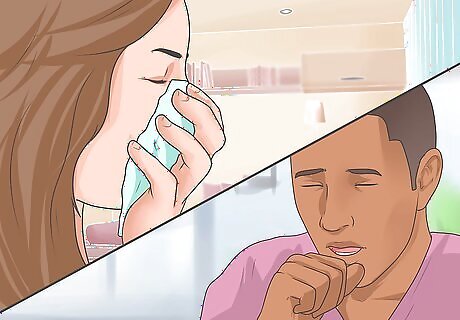
Try to blow your nose and cough during and after the treatment. The steam should loosen up some of the mucus in your throat and nasal passages, so it is important to blow your nose during and after the treatment. If you feel the need to blow your nose during the steam treatment, take a moment to do so. Make sure that you try to blow your nose at least once after the steam treatment as well. Repeat the steam treatment once every two hours.
Trying Other Approaches
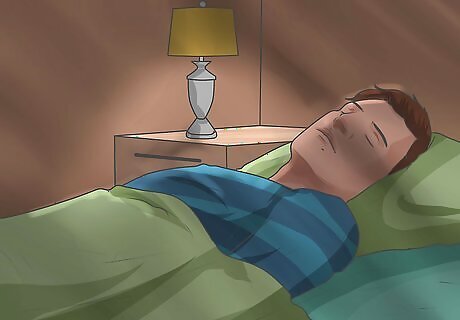
Get plenty of rest. Rest is essential when you are sick and your sleep requirements can increase, as your body is working hard to fight off the infection or virus. You will likely need more than eight hours of sleep each night and may also need to take a nap during the day if you feel like you need one. If your mucus cough is making it hard for you to fall asleep and stay asleep, then you may want to consider taking some cough medicine before bed. Listen to your body — if you feel fatigued, you need to get more rest. Applying a topical ointment that contains menthol and camphor may also help you to sleep at night. These expectorants can help to ease your coughing and thin out the mucus at the same time. Try rubbing some Vicks Vaporub or a similar ointment on your chest before you go to bed.
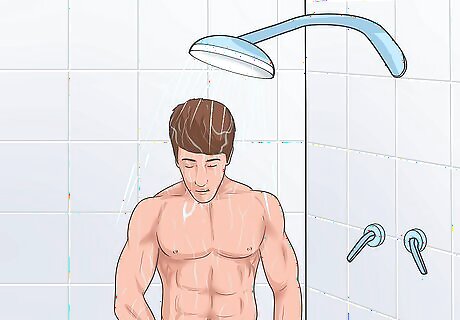
Breathe humid air. Breathing in humid air as much as possible may also help to get rid of your mucus cough. You can use a vaporizer to keep the air in your home humid all day and night or take a few hot, steamy showers throughout the day. If you do not feel like taking a shower, then you can also just sit in the bathroom with the shower running and the door closed. You will still breathe in lots of steam by hanging out in the bathroom.
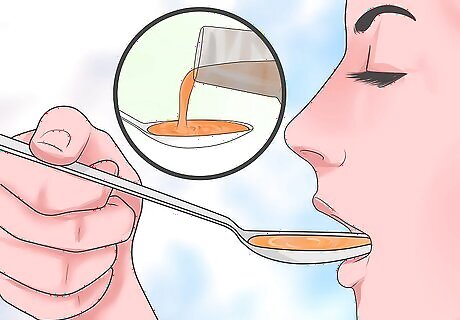
Try an over-the-counter expectorant. These medications help thin or loosen the mucus in your lungs, making it easier for you to cough it up. The mucus becomes less sticky and your cough will become more productive. If over-the-counter drugs don't work, you may want to ask your doctor about acetylcysteine (Mucomyst). It is available by prescription and may help break up your cough.
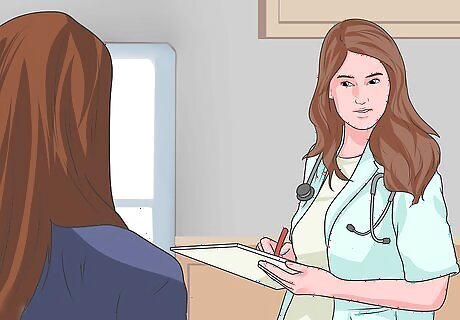
Talk to your doctor. Make sure that you talk to your doctor about any herbs you are using or that you plan to use. Some herbs can interact with prescription medications, so it is important to make your doctor aware of what you are taking. If you have not yet seen a doctor for your mucus cough, make sure that you do so if your symptoms do not improve within five to seven days.




















Comments
0 comment